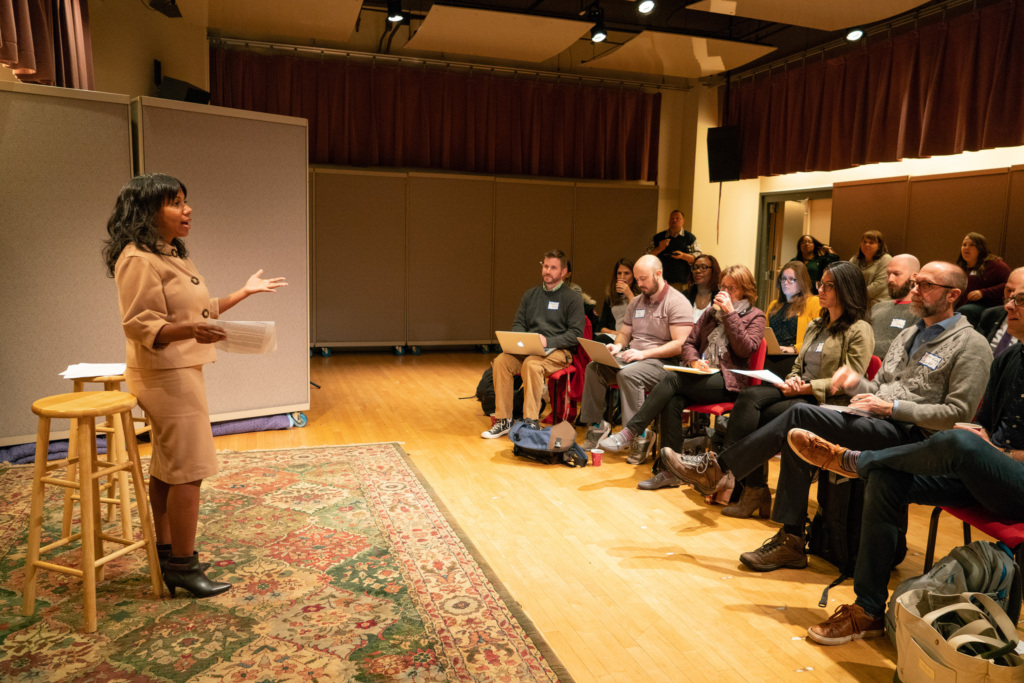




WBEZ reporter Natalie Moore leads a workshop at a NewsLitCamp® in Chicago. The Knight funding will help broaden the reach of NLP’s signature professional development for educators to 26 cities.
I have some deeply gratifying news to share: The John S. and James L. Knight Foundation has awarded NLP $5 million in support to expand our news literacy education programs in the United States. This generous support is part of a five-year, $300 million initiative that Knight Foundation announced today.
The imperative for this bold investment in strengthening journalism is clear — and is revalidated in a new study, Crisis in Democracy: Renewing Trust in America. This report, produced by the Knight Commission on Trust, Media and Democracy through a partnership of the Aspen Institute Communications and Society Program and Knight Foundation, focuses on the intersection of the distrust in American democratic institutions and in journalism and illustrates how distrust of one fuels distrust of the other.
These findings in particular stand out to me: that “almost 6 out of 10 (58 percent) adult Americans said the increase in information available today makes it harder for them to be well-informed” and that “just 41 percent of Americans were confident in their ability to navigate the news environment to remain knowledgeable on current events and determine what is factually true.”
Indeed, today we have greater access to credible information than at any other time in human history. But the inability to sort fact from faction breeds distrust in quality journalism and other democratic institutions, including our government.
In short, the health of our democracy hangs in the balance. That’s why news literacy is a vital, urgently needed skill that must be taught in our schools.
As NLP’s founder, I’m particularly grateful for such a significant investment by Knight, which has already played a crucial role in NLP’s creation and development. In 2008, it provided the funding that allowed me to launch this organization. In 2016, it helped us expand the use of our Checkology® virtual classroom. Its continued support for NLP’s growth is tangible validation of the utmost importance of our mission, as well as recognition of our proven, scalable approach to news literacy education.
I look to the coming years with hope that our collective impact will continue to make a difference in how young people engage with, share and act on information. With this funding, we are taking a giant leap toward achieving an ambitious goal: that by 2022, we will build a community of 20,000 practitioners who, through our programs and resources, teach news literacy skills each year to 3 million middle school and high school students (10 percent of the middle school and high school population) and support the adoption of news literacy into the American education experience.
As part of that effort, Knight’s support will help broaden the reach of our NewsLitCamps® — NLP’s signature professional development workshops for middle school and high school educators — to 26 cities, beginning in April with events in Charlotte, North Carolina, and Miami. We host these in partnership with news organizations, giving educators real-life, real-time insights from journalists in their communities.
This grant, the largest in NLP’s 11-year history, represents more than 20 percent of our operating expenses through 2022. We know that it would not have been possible without our committed supporters who — long before “misinformation” and “disinformation” became part of our lexicon — recognized the critical importance of a news-literate population.
Together, we are giving facts a fighting chance.